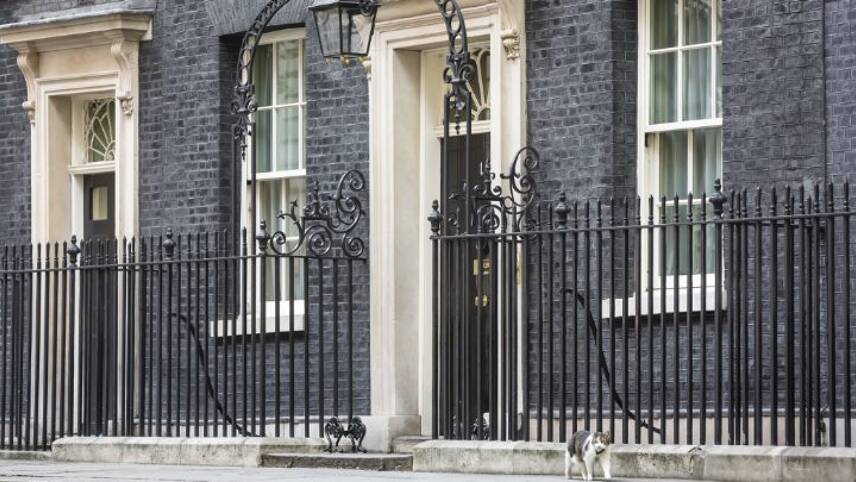Register for free and continue reading
Join our growing army of changemakers and get unlimited access to our premium content

Labour has described the reshuffle as "akin to rearranging the deckchairs on the Titanic"
Shortly after 1pm on Tuesday (8 February), 10 Downing Street announced that Johnson was conducting a reshuffle of his cabinet. The shuffle comes amid growing calls for Johnson to resign amid accusations of parties held by Johnson and his Ministers and staff during lockdown, which have seen the Prime Minister lose four senior aides in the space of a week.
Jacob Rees-Mogg’s appointment to the newly-created role of Minister for Brexit Opportunities has turned many heads. It is a promotion for him, giving him full Cabinet membership. The post that Rees-Mogg has left, Commons leader, is being filled by Mark Spencer. Spencer’s former role as chief whip has been handed to former Europe Minister for the Foreign Office Chris Heaton-Harris.
There will seemingly be little change in the way in which the Government is approaching sustainability.
Kwasi Kwarteng will remain in post as Secretary of State for Business, Energy and Industrial Strategy (BEIS) – a post he has held since July 2019. Prior to serving at BEIS, Kwarteng served as Parliamentary Under-Secretary of State for Exiting the EU. Kwarteng is notably defending Johnson’s controversial slur against Labour Leader Kier Starmer.
George Eustice will also be remaining in his post as Secretary of State for Environment, Food and Rural Affairs. Eustice was chosen to spearhead Defra in February 2020 by Johnson; at that time, he shuffled Theresa Villiers out of the post. Eustice is notably a long-term Brexiteer who left his Ministerial role for a four-month stint in 2019 over Theresa May’s handling of the process.
Additionally remaining in post is COP26 President Alok Sharma. The UK holds the presidency until COP27 begins in Egypt this November.
One change is the fact that Wendy Morton has been promoted within the Department for Transport (DfT), to Minister of State.
Elsewhere, Andrew Griffith MP, formerly the COP26 Unit’s Net-Zero Business Champion, has replaced Johnson’s policy chief Munira Mirza, who resigned late last week and criticized Johnson’s slur against Starmer.
As reported by the Guardian, some Conservative MPs from northern areas argue that the position should not have been given to a former investment banker in a safe seat (Arundel and South Downs).
Elsewhere, deputy chief whip Stuart Andrew has been promoted to Housing Minister within the Department for Levelling Up, Housing and Communities (DLUHC), taking over from Christopher Pincher. The Department last week published the long-awaited Levelling Up White Paper, which was met with a lukewarm reception among the green economy.
Andrew is now the Government’s eleventh housing Minister since 2010.
Additionally, Rishi Sunak has maintained his position as Chancellor, despite calls for him to step down and to contest Johnson’s position.
Hanging in the balance
While the main sustainability-related roles remain unchanged, much has been said in recent weeks about how the current state of uncertainty over whether Johnson can remain in post is an ideal environment for pushback against the Government’s green plans.
On the one hand, Labour, the Liberal Democrats, the Green Party and several of the UK’s trade bodies and environmental groups have called the response to the energy price crisis a “sticking plaster”, and the recent approval of the Abigail oilfield hypocritical given the UK’s role as COP26 host.
On the other hand, the net-zero sceptic group of backbench Conservative MPs continue to pedal the narrative that the cost of living crisis could have been solved with more domestic coal and/or gas, and lower environmental and social levies on bills. The Government last week released a blog dispelling these myths.
There are also concerns brewing around the fact that, for all the current policy shortfalls in the sustainability field at present, Johnson seems far more on-board with the net-zero agenda than Sunak or Liz Truss, the two current favorites to replace him as Conservative Party leader. Sunak’s most recent Budget was extremely poorly received across the green economy and there have repeatedly been reports that the Treasury and Number 10 have been at loggerheads over funding for policies regarding low-carbon heating.
Sarah George


Please login or Register to leave a comment.